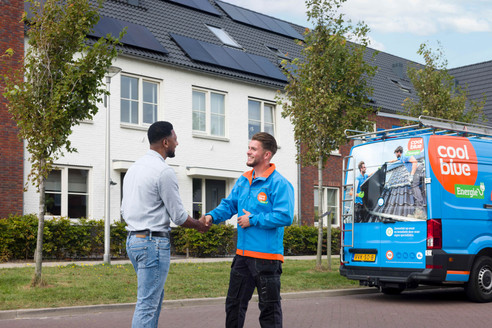
Latest update: 26 September 2024
On Prinsjesdag, the Minister of Climate Policy and Green sent in a legislative proposal to end the net-metering regulation per 1 January 2027.
This means the net-metering regulation probably will disappear, even though the Dutch Senate decided to keep the net-metering regulation 3 months ago (see source Nu.nl). The proposal does still have to be voted in by the Dutch Parliament and Senate (see source NOS).
This uncertainty doesn't help with the consumer confidence, which is so badly needed in this energy transition. And it makes it quite a challenge for you to make a well-considered choice.
In this article, I want to openly and transparently take you through the (un)certainties and what this means for your consideration to choose solar panels.
What's the impact of the announced regulations?
To be honest, we don't know exactly. That's because a lot is still unclear. Will there be an alternative to the net-metering regulation after all, as the first proposal indicated, or will the regulation disappear completely? Will feed-in costs be prohibited?
Last week, the Dutch Organization for Applied Scientific Research (TNO) worked out several scenarios. They say the payback period varies between 7 years (net-metering regulation, with feed-in costs), 10 years (no net-metering regulation, no feed-in costs) and 17 years (no net-metering regulation, with feed-in costs). That's a huge difference that doesn't help you as a customer. If you want to know how we calculated this, check out the end of this article.
At the same time, the latter scenario (no net-metering, but with feed-in costs) is very unlikely. As an energy supplier, I charge feed-in costs because of the net-metering regulation. If that regulation disappears, the extra costs that I incur for customers with solar panels will also largely disappear. And with that, so will the feed-in costs that I have to charge. The Dutch House of Representatives has also realized this (source: Nu.nl II). At the same time, we see that consuming your own solar power is becoming increasingly important. More and more clever ways are thought of to do so, such as installing your solar panels east-west instead of facing south, charging your car when the sun shines or storing power with a home battery.
That's why we assume a payback period of 7 to 10 years without any form of a net-metering regulation and with increased self-consumption from 30 to 60%. The latest study by TNO in September 2024 and comparison site Slimster also arrive at a similar number.
What do we know?
Despite all the uncertainty, we know a few things for sure:
- Another 2.5 years of net-metering and guaranteed yield. The net-metering regulation will remain in place until at least 1 January 2027. If you buy solar panels today, you'll have earned half of the costs back by the time the net-metering regulation disappears. You'll be even in 8 years.
- High yield even after that. A payback period of 8 to 10 years isn't as good as we've gotten used to in recent years, but still produces a yield of 10 to 12% per year. That's 5 times more than the interest on an average savings account. Partly because their price has decreased, solar panels remain profitable.
- Increase in home value. According to Funda, the importance of the energy label is increasingly important for people purchasing a new home. ING and NVM also see this reflected in house prices. According to them, improving the energy label by just one letter leads to an increase in the value of an average house of € 10,000 to € 15,000. The installation of solar panels quickly adds 1 or even 2 letters to the energy label. With that, you'll have earned back your solar panels on the day of installation.
- Go Green. With solar panels, you contribute to a sustainable future. According to the PBL, the Netherlands needs 6 to 8 times as much sustainable electricity to achieve the Climate Goals. Those solar panels on your roof are very necessary.
What does this mean for my decision whether or not to buy solar panels?
The honest story is that solar panels are slightly less attractive than they were a year ago. However, solar panels are still a good idea for most households. It's important to look at your personal situation:
- Self-consumption. How much of the generated electricity can you use yourself? The more you use yourself, the lower your feed-in costs are and the less dependent you are on the continued existence of the net-metering regulation.
- Future. What will your energy consumption look like in the future? Will you drive an electric vehicle, will you use a heat pump, or will you choose a home battery?
- Home. What's the expected impact of solar panels on the energy label of your home and the value of your home? And is that relevant to you?
- Congestion. Is there even room on the grid in your street to be able to feed back a surplus of electricity?
- Energy contract. Do you prefer certainty with longer fixed rates? Or would you rather benefit from more control over consumption with dynamic prices?
Of course, we'll help you answer these questions. Our experts are ready to help you determine whether solar panels are still a good idea, and how we can prepare your system for the future.
Solar panels at Coolblue Energy
To offer you certainty in these uncertain times, we have a special offer: an energy contract with fixed prices and a term until 1 January 2027. You'll be sure of the return on your investment until then. And yes, this contract has feed-in costs (€ 17.50 per month). Nevertheless, solar panels remain a good idea. We're happy to offer you personal advice. This way, you can be sure that you're making the right choice. Our experts are happy to help you during a free advice appointment.
Our calculation of the payback period
| Amount or percentage | |
|---|---|
| Price of 10 solar panels (series-connected) | € 4408 |
| Average electricity price (CBS, 2024) | € 0.34 per kWh |
| Feed-in tariff | € 0.05 per kWh |
| Feed-in costs (at Coolblue Energy) | € 17.50 per month |
| Percentage of self-consumption of your solar power | Now 30%, later 60% |
| Annual increase in energy prices | 2% |

Do you want to know more? We used these sources
- Nu.nl: https://www.nu.nl/klimaat/6313117/nieuwe-coalitie-wil-salderingsregeling-zonnepanelen-alsnog-schrappen-in-2027.html
- Nos: https://nos.nl/artikel/2507699-eerste-kamer-wil-saldering-zonnestroom-in-stand-houden
- Nu.nl II: https://www.nu.nl/klimaat/6313993/terugleverkosten-zonnepanelen-blijven-tot-keiharde-afschaffing-salderen.html
- TNO: https://repository.tno.nl/SingleDoc?find=UID%20b891b319-806a-4306-980d-bdbb02b7c653
- TNO (September 2024): https://www.hier.nu/system/files/inline/CE_Delft_230470_Kernrapport_Feitenbasis_aanpassing_salderingsregeling_zonne-energie_Def_0.pdf
- Slimster: https://slimster.nl/nieuws/terugverdientijd-zonnepanelen-stijgt-door-afschaffen-salderingsregeling
- Raisin spaarrente: https://www.raisin.nl/sparen/huidige-spaarrente
- Funda: https://www.funda.nl/voormakelaars/artikel-makelaar/energielabel-steeds-belangrijker-bij-aankoop-woning/
- ING: https://www.ing.nl/zakelijk/economie/nederland/meerwaarde-energiezuinige-woning-flink-toegenomen
- NVM: https://www.nvm.nl/media/w3xm2oy0/bijlage-4-energielabels-op-de-woningmarkt-themaonderzoek-bij-nvm-kwartaalcijfers-2024-1.pdf
- Het PBL: https://www.nu.nl/klimaat/6310192/nederland-kan-klimaatneutraal-zijn-in-2050-eigenlijk-wel-een-verrassing.html
